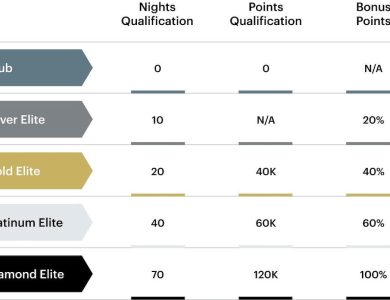
In today’s consumer-driven marketplace, promotional deals have become an enticing way for businesses to attract customers and drive sales. From discounted prices to special offers, these deals often promise significant savings and added value. However, they frequently come with fine print—detailed terms and conditions that can significantly impact the overall benefit of the promotion. This article delves into the intricacies of promotional deals with fine print, examining whether they are genuinely advantageous or if they pose potential pitfalls for consumers. By analyzing the nature of these offers, their common stipulations, and the implications for buyers, we aim to provide a comprehensive understanding of whether such promotions should be approached with caution or embraced as beneficial opportunities.
Understanding the Appeal and Risks of Promotional Deals
Promotional deals often captivate consumers with the allure of savings and exclusive offers. Attractive pricing and limited-time availability are powerful motivators, enticing buyers to act swiftly. The psychology behind these deals is compelling; they tap into a sense of urgency and exclusivity, often leading consumers to believe they are making a savvy financial decision. However, the appeal of these offers can sometimes overshadow the crucial details hidden in the fine print, which might include:
- Expiration dates that limit the timeframe in which the deal can be utilized.
- Restrictions on usage, such as specific products or services that are eligible.
- Automatic renewals or additional fees that might apply after the initial promotional period.
While promotional deals can indeed provide genuine savings, the risks lie in the often-overlooked terms and conditions. These can transform an initially attractive offer into a costly commitment. It’s essential for consumers to carefully scrutinize the details, weighing the immediate benefits against potential long-term obligations. By doing so, they can make informed decisions that align with their financial goals and avoid unexpected pitfalls.

Deciphering Fine Print: What to Look for and Why It Matters
When diving into promotional deals, the allure of immediate savings can often overshadow the intricacies nestled within the fine print. These details are crucial as they can dramatically alter the perceived value of an offer. Here are key aspects to scrutinize:
- Expiration Dates: Many deals are time-sensitive, and overlooking the expiration date can render a seemingly lucrative offer useless.
- Usage Restrictions: Some promotions come with limitations on how, when, or where they can be redeemed, such as specific stores or online-only conditions.
- Automatic Renewals: Be wary of offers that involve subscriptions. These often auto-renew at full price unless proactively canceled.
- Additional Fees: Hidden charges like shipping, handling, or processing fees can diminish the overall savings.
Understanding these elements not only safeguards you from potential pitfalls but also empowers you to make informed decisions. By dissecting the fine print, you can discern genuine value from cleverly marketed traps, ensuring that what you commit to truly aligns with your expectations and needs.
Evaluating Long-Term Implications of Promotional Agreements
Understanding the long-term implications of promotional agreements is crucial for businesses aiming to maintain sustainable growth. While the allure of immediate benefits can be tempting, the fine print often harbors clauses that may affect your business adversely in the future. It’s important to evaluate how these agreements align with your long-term strategic goals. Consider factors such as potential brand dilution, the impact on pricing structures, and the possibility of dependency on promotional discounts, which could erode profit margins over time.
When assessing these agreements, it is helpful to scrutinize several key aspects:
- Duration of Commitment: Long-term obligations can limit flexibility and adaptability.
- Exclusivity Clauses: These may restrict future partnerships and limit market expansion.
- Termination Conditions: Understand the penalties and processes for exiting the agreement.
- Performance Metrics: Ensure that the metrics used to evaluate success are aligned with your business objectives.
By carefully weighing these factors, businesses can make informed decisions that support both short-term gains and long-term sustainability.

Practical Strategies for Making Informed Decisions
To navigate the maze of promotional deals laden with intricate fine print, consider adopting some practical strategies that ensure you make informed decisions. Careful examination is paramount; take the time to read through all the terms and conditions, even if they appear tedious. Hidden clauses often lurk within, which can alter the perceived value of a deal. Identify key elements such as expiration dates, limitations, and any additional fees that might not be immediately obvious.
- Research and Compare: Before committing, research similar offers from competitors to understand if you’re genuinely getting a good deal.
- Consult Reviews: Look for customer reviews and testimonials. These can provide insights into the real-world experiences of others who have taken advantage of similar promotions.
- Seek Clarification: If any part of the fine print is unclear, don’t hesitate to contact the provider for clarification. It’s better to ask questions upfront than to face unexpected surprises later.
By applying these strategies, you can sift through the clutter of promotional offers with confidence, ensuring that the benefits outweigh any potential pitfalls hidden in the fine print.



